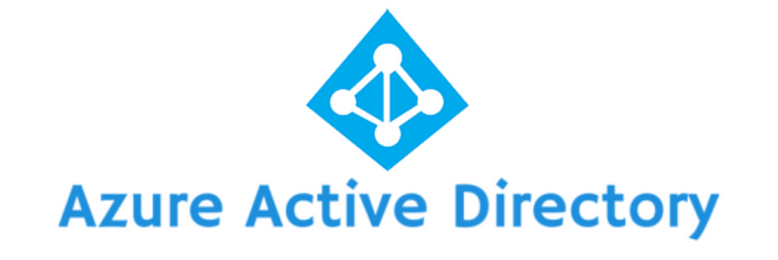Microsoft Teams External Access vs. Guest Access
September 21st, 2022 | 3 min. read
%20(42).jpg)
It’s clear that work patterns have drastically changed with the COVID-19 pandemic.
With many businesses doing remote work at this time (and likely in the future once this is over), collaboration tools like Microsoft Teams have also become the new norm. Companies no longer use these tools solely for internal communication; they also use them to engage with external users on different initiatives and projects.
With the convenience of inviting external guests to access critical business information, however, comes the risk of exposing sensitive information.
On Microsoft Teams, there are two options to support external collaboration in the platform: external access and guest access. Intelligent Technical Solutions (ITS) has helped hundreds of US-based businesses through the years with technology and cybersecurity – and our goal is to extend our scope and share our knowledge on cybersecurity with this article. We’ll cover the following:
- What is Microsoft Teams external access?
- What is Microsoft Teams guest access?
- What are the differences between Microsoft Teams external and guest access?
- When should you grant external or guest access?
By the end of this article, you can collaborate with people outside your organization and rest easy knowing that your data stays secure.
What is Microsoft Teams External Access?
External access allows users to access your entire domain, which means people outside your domain can contact you. This access enables calls, video chatting, and instant messaging with almost anyone with a Microsoft Teams or Skype business account.
This access also allows users to see an internal directory of your organization to search for the specific person to collaborate with.
External access is enabled in Teams by default, which means users can enjoy its benefits anytime as long as they have a Microsoft Teams profile. If privacy is a big deal, you can restrict external access by blocking specific domains or turning it off entirely.
Note that users with external access are not allowed to do the following:
- Share files
- See the out-of-office message of someone in another organization
- Access Teams resources
- View the phone number of dial-in meeting participants
- Use “Meet Now”
What is Microsoft Teams Guest Access?
Guest access allows external users to be added to your organization. They have almost similar capabilities to your native users. They can use instant messaging, voice and video chat, and access shared company files stored in your cloud drive.
Guest access is suitable when people outside your organization are heavily involved in a project, as it eliminates the delays caused by asking permission to access files and drives.
Anyone with an Azure Active Directory or consumer email account can be granted guest access in Microsoft Teams.

Although guest access offers more capabilities than external access, it still has restrictions. Users with guest access are not allowed to do the following:
- Search for people in other organizations
- Create teams
- Edit calendar items and schedules
- Upload files to individual conversations
Differences Between External and Guest Access
The information above may have already given you an idea about the differences between the two types of accesses, but we’ve prepared the following table to help you compare:
|
Features |
External Access |
Guest Access |
|
Chat with someone in another organization |
Yes |
Yes |
|
Call someone in another organization |
Yes |
Yes |
|
See if someone from another organization is available for a call or chat |
Yes |
Yes |
|
Search for people in other organizations |
Yes |
No |
|
Share files |
No |
Yes |
|
See the out-of-office message of someone in another organization |
No |
Yes |
|
Use @mentions |
Yes |
Yes |
|
Access Teams resources |
No |
Yes |
|
Be added to a group chat |
Yes |
Yes |
|
Be invited to a meeting |
Yes |
Yes |
|
Make private calls |
Yes |
Yes |
|
View the phone number for dial-in meeting participants |
No |
Yes |
|
Use IP video |
Yes |
Yes |
|
Use screen sharing |
Yes |
Yes |
|
Use meet now |
No |
Yes |
|
Edit sent messages |
Yes |
Yes |
|
Delete sent messages |
Yes |
Yes |
|
Use Giphy in conversation |
Yes |
Yes |
|
Use memes in conversation |
Yes |
Yes |
|
Use stickers in conversation |
Yes |
Yes |
|
Presence is displayed |
Yes |
Yes |
|
Create teams |
Yes |
No |
|
Edit calendar items |
Yes |
No |
|
Upload files to individual conversations |
Yes |
No |
You may find a full comparison list between external and guest access on Microsoft’s page.
When to Grant External and Guest Access?

Businesses must be careful when choosing between external and guest access. Grant the wrong one, and you will end up with a communication disaster or, worse, unwanted data access and security incidents.
External access is commonly used for contacting users from a different domain. It’s a great way to discover and be discovered by various organizations. Grant external access when:
- You have users in external domains who need to communicate (For example, mike@its.com and kat@someothercompany.com are working on a project and need constant communication)
- You want your team to contact people in specific businesses outside of your organization
- You want other organizations to find and contact you and your team using your email address
Meanwhile, Guest Access is helpful when working with users requiring team and channel access. Use Guest Access when:
- Your project requires more in-depth collaboration tools
- Your clients/partners need to access files and documents to check and collaborate on a project
Ready to Choose Between MS External and Guest Access?
Microsoft Teams external and guest access are essential in collaborating with other businesses and outside users. Both types help foster good communication between two parties simultaneously working on a project.
Though external and guest access may sound alike, they have several differences in their capabilities. Knowing those differences will not just make collaboration more seamless but will also help you make intelligent decisions when it comes to protecting your data.
At ITS, we help businesses make intelligent decisions on their IT needs by sharing our knowledge of technology and cybersecurity.
Make Microsoft work for you! Discover how to use Microsoft 365 to your advantage by reading our article How to Succeed with Microsoft Teams.
Topics:
